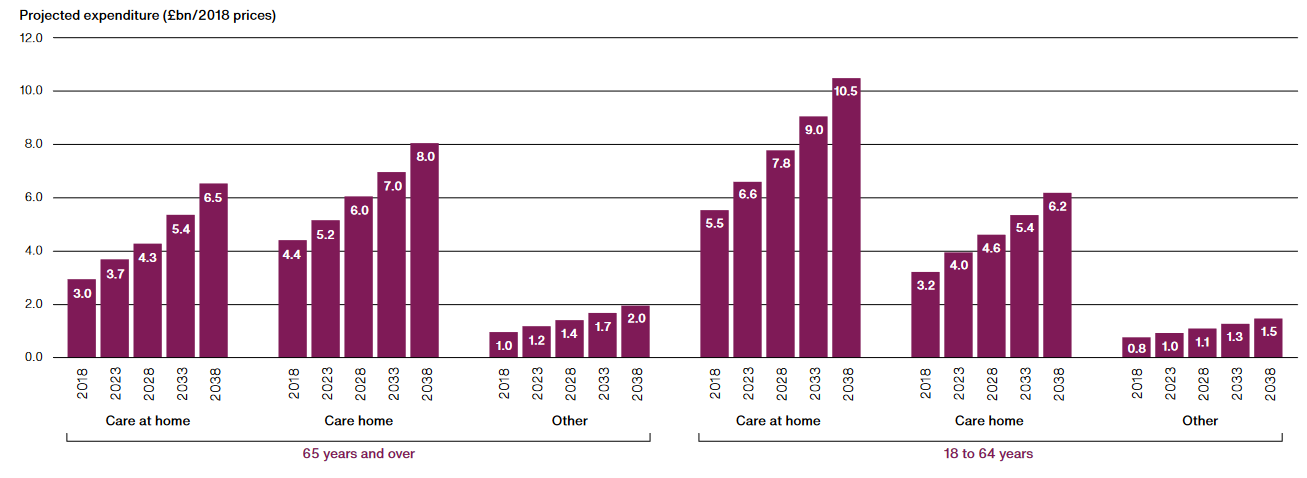
The British government is failing to collect adequate financial data from local authorities, a new Parliamentary report warned this week, revealing that a shocking 91% of local governments failed to deliver their 2020-2021 financial audits in time for government accounts to be published -- even by an extended deadline.
Astonishingly, 70 authorities are two years behind in publishing audited accounts and 15 local authorities haven't published audited accounts for three years, the February 2, 2022 report from the Committee of Public Accounts emphasised -- in a report that did not feature a single reference to "digital" or "technology". (Local authority audit committees do, however, “mostly lack independent, technically qualified members” it adds.)
"The Department ["for Levelling Up, Housing and Communities] must set out what changes it has made to improve the quality of the local government financial data it collects, what requirements it will carry over from its monthly COVID-19 monitoring, and whether it now has the capacity to adequately oversee the risks to local authority finances and services" MPs said in the local authorities audit report this week.
The report emphasises that central government funding for local authorities fell in real terms by over 50% over the past 10 years. This has left local government raising prices for services and making often poor capital investment decisions even as demand for key services such as social care has risen "with local authorities spending as much as eight pounds out of every ten from their core funding to deliver these services" MPs said.
Local authority audits: Gov't not acting with urgency

MPs on the committee have been raising concerns over this issue for years.
In 2020, an independent review of the oversight of local audit and the transparency of local authority financial reporting, carried out in line with Committee recommendations from 2018 and 2019, highlighted “a potential weakness in the way in which audit outcomes are considered and presented to both the local authority and the public”, for example, while a National Audit Office (NAO) report in late 2021 also flagged failures.
(The NAO did suggest that "the Department has improved the information it collects and the analysis undertaken on local government finance [and] has adopted a more strategic approach to data and analysis, moving from producing bespoke analysis for each fiscal event – such as each Spending Review – to having a range of tools that can be re-used on an ongoing basis. It has developed a local authority sustainability tool which models local authorities’ financial resilience. This informs [its] assessment of the risk of widespread financial failure."
Local authority resources to support governance meanwhile fell by 34% in real terms from 2010–11 to 2017–18. The government "did not have arrangements to spot emerging governance weaknesses across the sector" the report drives home, adding: "The quality and timeliness of local external audit have [also] deteriorated; this was preceded by concerns that the level of audit fees had been set too low despite the critical role external audit plays in providing assurance to the Department and underpinning local authorities’ own financial management."

[The government] "did not act with sufficient urgency, nor has it set out an overarching plan and timetable, to address the severe and pressing problems with the local government audit market" MPs warned.
Most of the underlying issues tie back to a deeply inconsistent funding climate for local gov't (addressed in some detail in the report and in the NAO's November 2021 "The local government finance system in England: overview and challenges"). For the many technology vendors regularly promising shiny "digital transformation" tools of various stripes in The Stack's inbox meanwhile, recognition of just how harsh the fiscal climate is for local authorities is critical: IT leaders are looking to reduce OpEx and incontrovertible of very clear ROI.
On the funding side, the MPs noted that "some support for adult social care will start to flow from April 2022, but it seems clear to us no other changes will be delivered before April 2023 at the very earliest."
The report adds: "This prolongs the damaging uncertainty for local government. Although the government needs to take time to get the reforms right and ensure alignment with the levelling up agenda and other Ministerial priorities, we have previously recommended that a multi-year settlement be established, nonetheless. This would provide a stable funding environment and act as a bridging mechanism while the Department works on long-term reforms. Unfortunately the Department has again missed this opportunity and will also continue to be hindered by severely outdated funding formulae and its lack of information on services."
Working on digital transformation at a local authority and proud of a recent achievement? We'd love to hear from you. Vendors who think they can help reform local authority financial reporting, on a budget? Likewise.
Get in touch with us by email and connect with us on LinkedIn.
